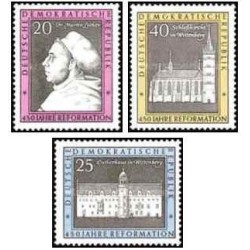- جدید
- ناموجود



توجه : درج کد پستی و شماره تلفن همراه و ثابت جهت ارسال مرسوله الزامیست .
توجه:حداقل ارزش بسته سفارش شده بدون هزینه پستی می بایست 180000 ریال باشد .
توجه : جهت برخورداری از مزایای در نظر گرفته شده برای مشتریان لطفا ثبت نام نمائید.

Franz von Suppé or Francesco Suppé Demelli (18 April 1819 – 21 May 1895) was an Austrian composer of light operas from the Kingdom of Dalmatia, Austro-Hungarian Empire (now part of Croatia).[1][2] A composer and conductor of the Romantic period, he is notable for his four dozen operettas.

Franz von Suppé's parents named him Francesco Ezechiele Ermenegildo Cavaliere di Suppé-Demelli when he was born on 18 April 1819 in Spalato, now Split, Dalmatia, Austrian Empire. His Belgian ancestors may have emigrated there in the 18th century.[3] His father – a man of Italian and Belgian ancestry – was a civil servant in the service of the Austrian Empire, as was his father before him; Suppé's mother was Viennese by birth. He was a distant relative of Gaetano Donizetti. He simplified and Germanized his name when in Vienna, and changed "cavaliere di" to "von". Outside Germanic circles, his name may appear on programmes as Francesco Suppé-Demelli.
He spent his childhood in Zara, now Zadar, where he had his first music lessons and began to compose at an early age. As a boy he had no encouragement in music from his father, but was helped by a local bandmaster and by the Spalato cathedral choirmaster.[4] His Missa dalmatica dates from this early period. As a teenager in Cremona, Suppé studied flute and harmony. His first extant composition is a Roman Catholic mass, which premiered at a Franciscan church in Zara in 1832. At the age of 16, he moved to Padua to study law – a field of study not chosen by him – but continued to study music. Suppé was also a singer, making his debut as a basso profundo in the role of Dulcamara in Donizetti's L'elisir d'amore at the Sopron theatre in 1842.
He was invited to Vienna by Franz Pokorny,[3] the director of the Theater in der Josefstadt. In Vienna, after studying with Ignaz von Seyfried and Simon Sechter, he conducted in the theatre, without pay at first, but with the opportunity to present his own operas there. Eventually, Suppé wrote music for over a hundred productions at the Theater in der Josefstadt as well as the Carltheater in Leopoldstadt, at the Theater an der Wien. He also put on some landmark opera productions, such as the 1846 production of Meyerbeer's Les Huguenots with Jenny Lind.[3]

Franz von Suppé died in Vienna on 21 May 1895 and is buried in the Zentralfriedhof.[3]
Two of Suppé's comic operas – Boccaccio and Donna Juanita – have been performed at the Metropolitan Opera in New York, but failed to become repertoire works. He composed about 30 operettas and 180 farces, ballets, and other stage works. Although the bulk of Suppé's operas have sunk into relative obscurity, the overtures – particularly Dichter und Bauer (Poet and Peasant, 1846) and Leichte Kavallerie (Light Cavalry, 1866) – have survived and some of them have been used in all sorts of soundtracks for films, cartoons, advertisements, and so on, in addition to being frequently played at symphonic "pops" concerts. Some of Suppé's operas are still regularly performed in Europe; Peter Branscombe, writing in The New Grove Dictionary of Music and Musicians, characterizes Suppé's song "Das ist mein Österreich" as "Austria's second national song".
Suppé retained links with his native Dalmatia, occasionally visiting Split (Spalato), Zadar (Zara), and Šibenik. Some of his works are linked with Dalmatia, in particular his operetta The Mariner's Return, the action of which takes place in Hvar. After retiring from conducting, Suppé continued to write operas, but shifted his focus to sacred music. He wrote a Requiem for theatre director Franz Pokorny (now very rarely performed; it premiered on 22 November 1855, during the memorial service for Pokorny); an oratorio, Extremum Judicum; three masses, among them the Missa Dalmatica; songs; symphonies; and concert overtures.
تشکر نظر شما نمی تواند ارسال شود
گزارش کردن نظر
گزارش ارسال شد
گزارش شما نمی تواند ارسال شود
بررسی خود را بنویسید
نظر ارسال شد
نظر شما نمی تواند ارسال شود

check_circle
check_circle
















